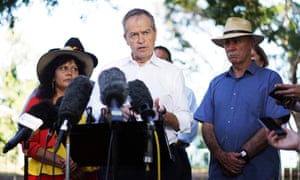Extract from The Guardian
High-quality international offsets should be part of any credible policy, industry says
Business groups are defying the Morrison government’s political
assault on the use of international permits, arguing a credible climate
policy should include access to high-quality international offsets,
because they are a key mechanism to help Australia meet its Paris
target.
With climate change persisting as a significant campaign flashpoint, the chief executive of the Australian Chamber of Commerce and Industry, James Pearson, told Guardian Australia international permits were part of the toolkit for mitigating climate change in a cost-effective way.
“Australia’s carbon emissions reduction policies should be stable, predictable and provide long-term certainty for business,” Pearson said. “They should include access to credible international offsets; be market-based; implemented nationally; and minimise the potential for carbon leakage”.
Emma Herd, the chief executive of the Investor Group on Climate Change, which represents institutional investors, such as super funds, with total funds under management of over $2tn, said international carbon credits were a key component of meeting Australia’s Paris targets.
“They must have integrity and there should be limits on the amount
you can use, but there is wide agreement that they have to be part of
the policy toolkit,” Herd said.With climate change persisting as a significant campaign flashpoint, the chief executive of the Australian Chamber of Commerce and Industry, James Pearson, told Guardian Australia international permits were part of the toolkit for mitigating climate change in a cost-effective way.
“Australia’s carbon emissions reduction policies should be stable, predictable and provide long-term certainty for business,” Pearson said. “They should include access to credible international offsets; be market-based; implemented nationally; and minimise the potential for carbon leakage”.
Emma Herd, the chief executive of the Investor Group on Climate Change, which represents institutional investors, such as super funds, with total funds under management of over $2tn, said international carbon credits were a key component of meeting Australia’s Paris targets.
She noted that the Morrison government – despite its recent criticisms – had been “negotiating hard” for Article 6 of the Paris agreement “to support credible carbon markets which deliver access to international offsets for Australian business”.
Herd pointed out that during the last climate change talks in Poland in December last year, that issue “was actually a core priority for Australian negotiators”.
The Business Council of Australia and the AiGroup also pointed to their previous statements of support for the use of permits on Thursday.
After days of the Coalition bombarding Labor’s climate policy, and in response to claims that business could be forced to spend between $25bn and $35bn on international credits to meet a 45% pollution reduction target, Bill Shorten muscled up on the hustings in Darwin on Thursday.
Shorten abandoned the low-key demeanour he has made a study of projecting in the opening week of the campaign, and branded the government’s campaign against Labor’s climate change policies “malicious and stupid”.
“It’s a malicious campaign by this government,” the Labor leader said. “What they want to do is scare Australians and say that it’s too hard to take action on climate change.
“In climate change, there will never be enough figures to satisfy the climate sceptics. If you don’t believe in the science of climate change, no amount of evidence will ever convince you because, fundamentally, it’s a stupid position not to take action.”
Labor is proposing an emissions reduction target of 45% and has signalled business will be permitted to use international permits to help meet its liabilities.
Herd told Guardian Australia some of the cost estimates being deployed during the election campaign about permits appeared to be based on the European Unit Allowance, the compliance unit in the European Emissions Trading Scheme.
“This is the most expensive reference price you could currently find,” she said. “Project-based international offset credits are usually much cheaper, especially if the company has in place a direct off-take agreement with the project”.
She pointed out the local carbon price, the Australian Carbon Credit Unit, was also significantly cheaper than the European allowance price being quoted. “It looks like much of the commentary is potentially conflating the EU compliance price with international offsets, and then using it as a generic carbon price to calculate an inflated total cost of climate action for Australia. This is not helpful for anyone.”
While Morrison is now pillorying the use of permits, the Coalition in 2017, when the current treasurer, Josh Frydenberg, was environment minister, took a decision “in principle” to allow the use of foreign carbon credits.
When it reviewed its existing suite of climate change policies in late 2017, the government accepted the use of permits and said a final decision “on the timing of use and appropriate quantity and quality limits” would be taken by 2020.
On Thursday, on the hustings in Tasmania, Scott Morrison declared Shorten “can’t even tell you how much money that companies are going to have to send offshore”.
“The Australian reports today $25bn, we actually think it’s higher than that. I understand it’s around $35bn that they will force companies to send offshore for those foreign carbon credits.
“That could be invested here in Australia, in employing more people, increasing wages.”
Morrison also appeared to leave open the option the government could consider nuclear energy during a radio interview in Tasmania. He said the government didn’t intend to subsidise nuclear energy but it was “not, not on the agenda”, even though there are legislative bans on nuclear energy.
The prime minister suggested the test of whether a project could proceed was whether it could pay its own way, and he said the evidence to date suggested nuclear power was too expensive.

No comments:
Post a Comment